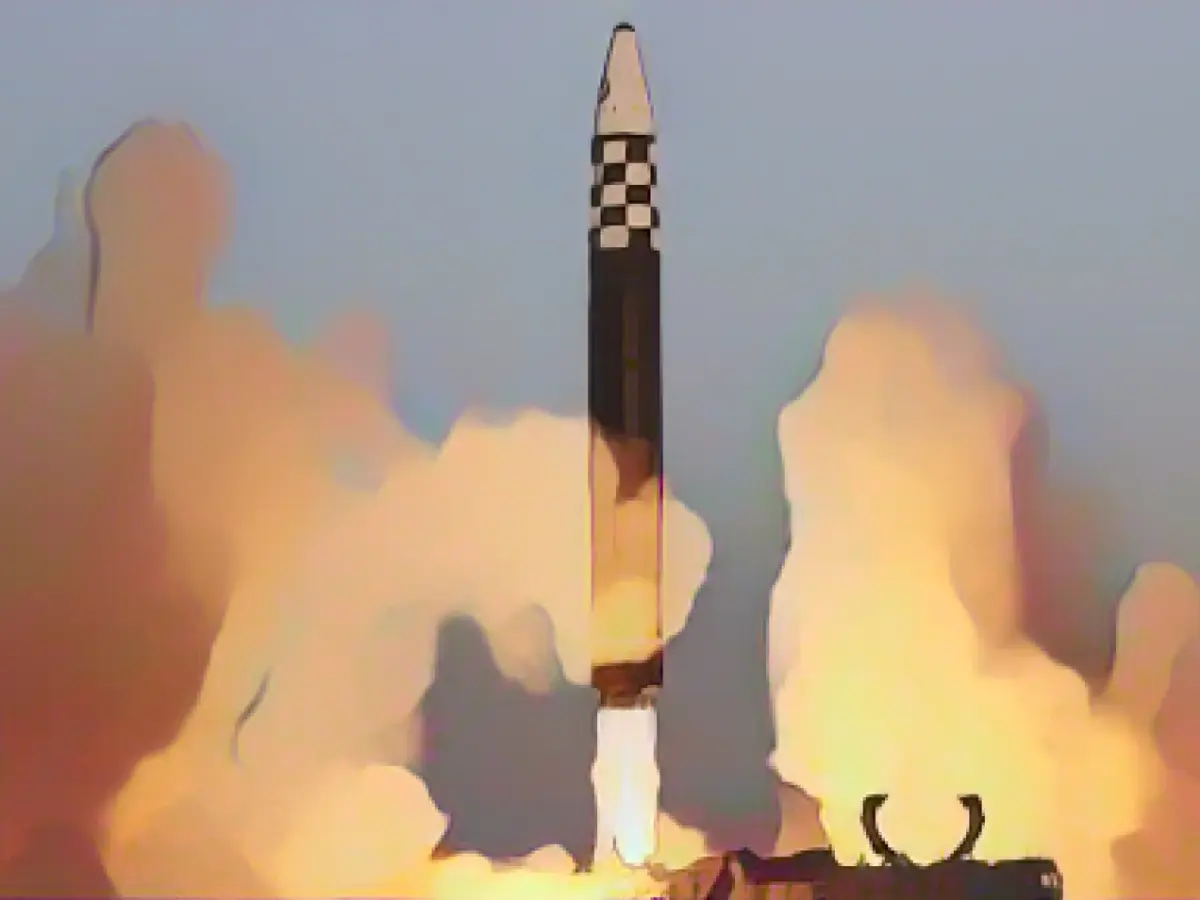Conflicts - South Korea: North Korea apparently tests intercontinental ballistic missile
According to its neighbors South Korea and Japan, North Korea has fired a long-range nuclear-capable missile that could theoretically reach the US mainland. "The North Korean ballistic missile was launched from a steep launch angle and fell into the East Sea (Sea of Japan) after a flight of about 1,000 kilometers," South Korea's General Staff announced on Monday. The suspected intercontinental ballistic missile (ICBM) would have had the potential to fly 15,000 kilometers, the Japanese news agency Kyodo quoted government officials in Tokyo as saying. North Korea has already tested ICBMs several times this year.
It was the second test of a ballistic missile by the one-party state within twelve hours. According to the South Korean military, North Korea had tested a short-range missile late on Sunday evening despite UN prohibition orders. A few hours earlier, the nuclear-powered American submarine "USS Missouri" had docked in the South Korean port city of Busan. The temporary deployment of these and other US weapons systems is intended to serve as a deterrent to North Korea. As recently as July, North Korea warned the USA against sending nuclear submarines to South Korea, among other things, and indirectly threatened to shoot down American reconnaissance aircraft.
Following the latest missile test, South Korea's top command accused its largely isolated neighbor of serious provocation. Japan's Prime Minister Fumio Kishida said that North Korea's missile tests threatened "peace and stability in the region". UN resolutions prohibit the self-proclaimed nuclear power from launching or even testing ballistic missiles of any range. These are usually surface-to-surface missiles, which - depending on their design - can also be equipped with a nuclear warhead.
Tensions significantly heightened
Tensions on the Korean peninsula have once again increased significantly. Following an unprecedented series of missile tests last year, North Korea has again tested missiles and guided missiles several times this year. The development of ICBMs is primarily aimed at the nuclear power USA, which Pyongyang accuses of pursuing a hostile policy. Among other things, the USA and South Korea resumed their joint military exercises in full after having reduced or completely suspended them for some time.
The USA and its partner countries South Korea, Japan and Australia recently imposed new sanctions on North Korea due to the launch of its first military reconnaissance satellite in November. They accuse Pyongyang of using technologies that are directly related to its ICBM program. Pyongyang is subject to tough international sanctions due to its nuclear weapons and missile program.
The Federal Foreign Office in Berlin condemned the latest missile launches "in the strongest possible terms", as stated in a statement on Monday evening. North Korea is thus irresponsibly increasing tensions in the region and threatening regional and international peace. "We urge North Korea to refrain from further tests, to fully implement the UN Security Council resolutions, to accept the offers of talks from the US and South Korea and to enter into serious negotiations on dismantling its nuclear and missile programs."
Read also:
- Year of climate records: extreme is the new normal
- Precautionary arrests show Islamist terror threat
- UN vote urges Israel to ceasefire
- SPD rules out budget resolution before the end of the year
- In response to North Korea's test of an intercontinental ballistic missile, Japan's Prime Minister Fumio Kishida expressed concern about the potential threat to "peace and stability in the region."
- Following the missile test, South Korea's top command accused North Korea of serious provocation and accused its neighbor of having defied UN prohibitions against testing ballistic missiles.
- The test comes at a time when tensions on the Korean peninsula have significantly heightened due to a series of missile tests and guided missile launches by North Korea.
- According to UN resolutions, North Korea is prohibited from launching or testing ballistic missiles of any range, including intercontinental ballistic missiles.
- Militarily, North Korea's development of intercontinental ballistic missiles is primarily aimed at the nuclear power USA, which Pyongyang accuses of pursuing a hostile policy.
- Shortly before North Korea's latest missile test, the nuclear-powered American submarine "USS Missouri" had docked in the South Korean port city of Busan as part of a temporary deployment intended to serve as a deterrent to North Korea.
- The Kyodo News in Tokyo reported that North Korea's latest missile test involved a long-range rocket that could potentially reach Tokyo, highlighting the growing military tensions between Japan and North Korea.
Source: www.stern.de








